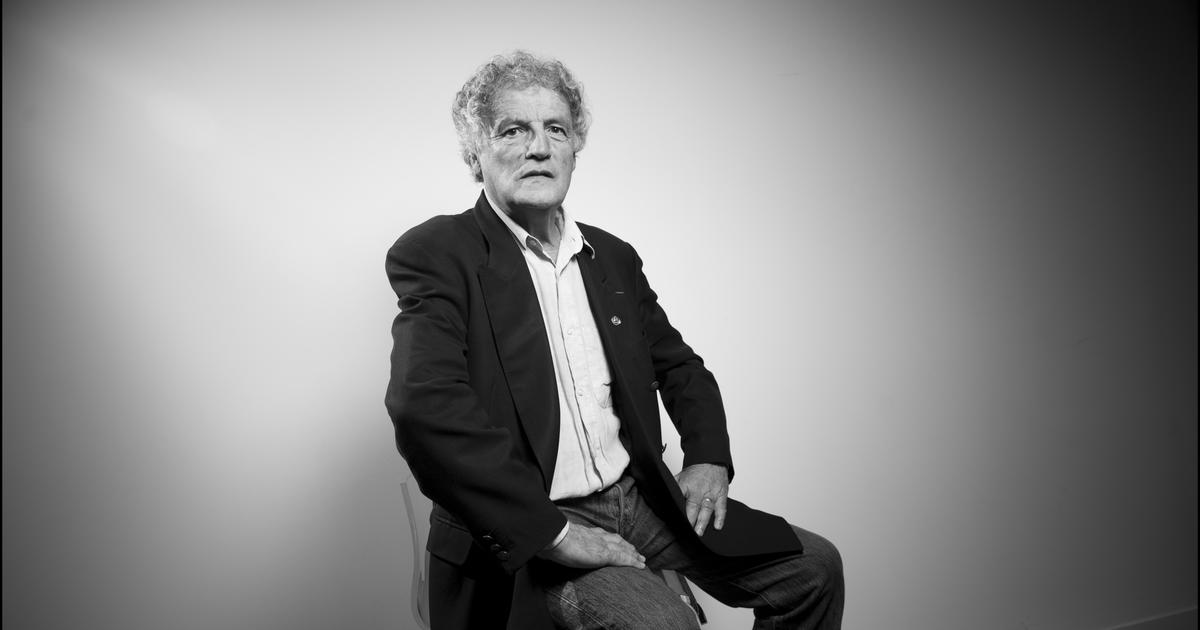By losing company on Monday July 26 in his ninety-first year, André Tubeuf is playing a very nasty trick on us.
Above all, it is a page that has been turned, with the man who has succeeded in making music criticism one of the fine arts, at a time which preferred to see it as a branch of journalism.
Great mind, great pen, great lord, he was the direct witness of bygone eras, places and people that he brought back to life through his sense of poetic narrative nourished by philosophical thought.
Born in 1930 in Smyrna, Turkey, he grew up in the scents and flavors of an Orient dreamed as much as lived, before experiencing the great change of scenery of the khâgne of the Lycée Louis-le-Grand after the war, then the intellectual emulation and cultural awakening at the École normale supérieure, where his classmates are called Dominique Fernandez or Jacques Derrida. He recounts these experiences in a series of interviews with Lionel Esparza on France Musique, and in two small books with modest emotion in Actes Sud *, his most personal in a vast bibliography. Agrégé in philosophy, he taught it until retirement age at the Fustel-de-Coulanges high school in Strasbourg, having only left the khâgne to better return as a teacher. There as in his lectures and radio broadcasts,he speaks without notes, crossing references with an agility of mind, an elegance of speech and an epic breath which are his only.
He discovered music in his student years, those of the rise of the long-lasting LP record, watching for the release of recordings by Elisabeth Schwarzkopf, Dietrich Fischer-Dieskau and Hans Hotter with whom he built a first-hand culture, founded listening so actively that he perceives the palpable presence of the artists. It is this incarnation that he will be keen to transmit, as a true passer, when he writes his first musical reviews, in the mid-1970s. Finally, he no longer has to pay for these 33rpm boxes and festival tickets. which are now sent to him. In the meantime, he has become intimate with his idols of yesterday, from Elisabeth Schwarzkopf to Dietrich Fischer-Dieskau. And when pianists Claudio Arrau or Rudolf Serkin play in Strasbourg,they are received in André Tubeuf's apartment, not to exchange superficial social events, but to understand the philosophical springs of an art that puts us in direct relation with transcendence. In Alsace, he stays away from the Parisian coteries, resuming his night train after a premiere at the Palais Garnier, sending his articles to
Point
, at
L'Avant-Scène Opéra
,
Diapason
or
Classica
, not to mention his unforgettable cover texts for EMI records.
Very attached to the exclusive art of German lied, as well as to the refinement of chamber and piano music, André Tubeuf always preferred the truth of expression to the show of virtuosity, hence his spontaneous mistrust. for the symphony orchestra, too shimmering.
While being an opera enthusiast, whom he loved not for its spectacular side but for its ability to resuscitate Greek tragedy (which he had translated with Maurice Clavel for Sylvia Monfort in the 1950s).
Starting with Wagner, of whom he had universal knowledge.
Dictionaries, biographies, essays, André Tubeuf leaves an important bibliography whose common threads are his style, precise in the choice of the right word, and his capacity to transmit science and emotions. Plon, Actes Sud, Taillandier
André Tubeuf was first and foremost a style. Lyrical, very literary, bordering on preciousness, but so elaborate, precise in the choice of the right word and the transmission of the musical content and the emotions produced, that one could no longer listen to the great performers of the past other than through his listening and his gaze, two faculties constantly intertwined with him. Willingly conservative, this great nostalgic was not backward-looking for all that, and he never stopped following the emergence of new talents and being ready to welcome them to his Olympus, while being merciless towards what he considered to be fashion or ease. In recent years, when this self-pity foe was asked how he was doing, he would simply reply:
"I waver".
His pen was more active than ever.
Because he applied to himself the rigor and discipline he admired in the musicians he spent his life serving.
*
The Orient behind you
, Actes Sud, 2016.
The Louis-le-Grand Years
, Actes Sud, 2020.








